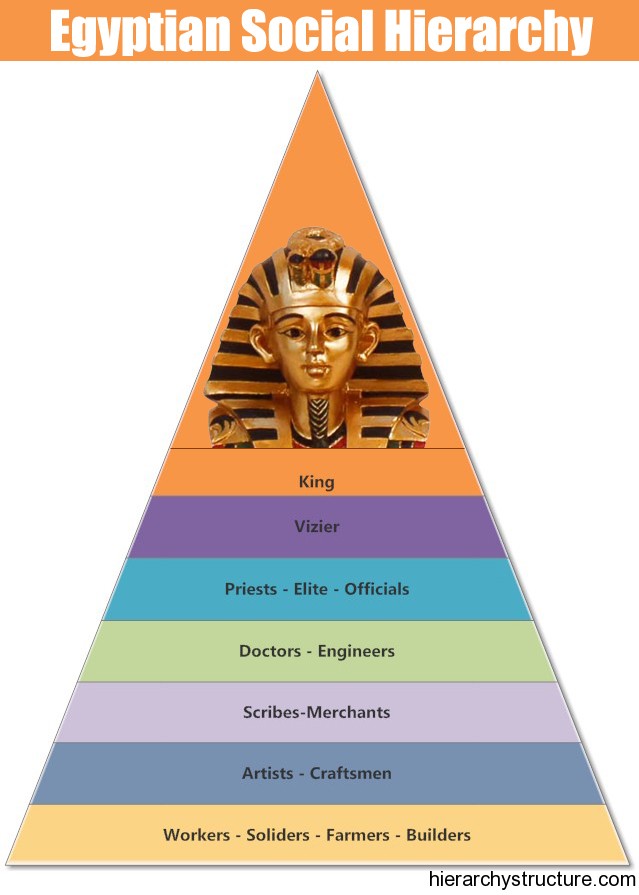The ancient Egyptian social hierarchy placed the Pharaoh at the top and the farmers and slaves at the bottom. The Pharaohs were the community of people who were the richest and the most powerful. Broadly speaking, the Egyptian society manifested God at the top position. They believed that the god controlled their lives and they performed all the needful to make god happy. The Pharaohs were believed to be god in the human form.
The social hierarchy of Egypt, starting from the top to bottom consisted of Pharaohs, Vizier, Nobles, Priests, Scribes, and Soldiers etc. Now let’s talk about each class, one by one.
- Pharaohs: The Pharaohs were believed to be God on earth and they had most of the power. They were responsible for making and implementing the different rules and regulations. They always ensured that their province is not attacked by enemies or any form of invaders.
In case of any external threat or internal conflict, they took the responsibility of directing the army to take the appropriate action. The main aim of the Pharaohs was to protect their specific provinces from any form of dangers. Various rulers worked for the Pharaohs. The Pharaohs assigned the rulers with various responsibilities in the time of need.
Moreover, the taxes which were paid by the farmers in the form of grains were stored in the warehouses of the Pharaohs. The grains were kept for the emergency use.
- Vizier: As a general rule, a single person could not manage all the essential duties to maintain a province. So, the Pharaoh appointed a chief minister, who is known as Vizier. The Vizier can also be said as a chief advisor. The job role of a Vizier was to ensure that all the official work was in order and there was no delay in any form. They kept record of all the official documents and supervised all the administrative tasks. They ensured that all the taxes were collected in a timely manner. In addition, they were also responsible for supply of food in case of any emergency situations, resolution of disputes between the nobles and giving all round protection to the property and assets of the Pharaoh.
- Nobles: Nobles were below in status of the Pharaohs in the Egyptian social hierarchy. They made all the local laws and their main responsibility was to keep peace and decorum in the society. They held most of the government posts and enjoyed great status by earning the profits that are paid as tributes to them by the Pharaohs.
- Priests: Their sole task was to keep the Gods happy. They spent most of their times in performing rituals and ceremonies in the temples.
- Scribes: The scribes were educated people and they were able to read and write. They kept track of all the government records and worked in association with the viziers. They kept updated databases of things such as how much food grain was produced in a particular year, how many soldiers were present in the army and what are number of gifts given to the Gods etc.
- Soldiers: They were responsible for the protecting the country against the enemies. In addition to providing defense to the country, they also supervised the farmers and slaves while building structures such as pyramids.
In the Egyptian hierarchy, social mobility was also possible. By acquiring certain skills and capabilities, people of lower classes were being able to move upward in the social hierarchy.

